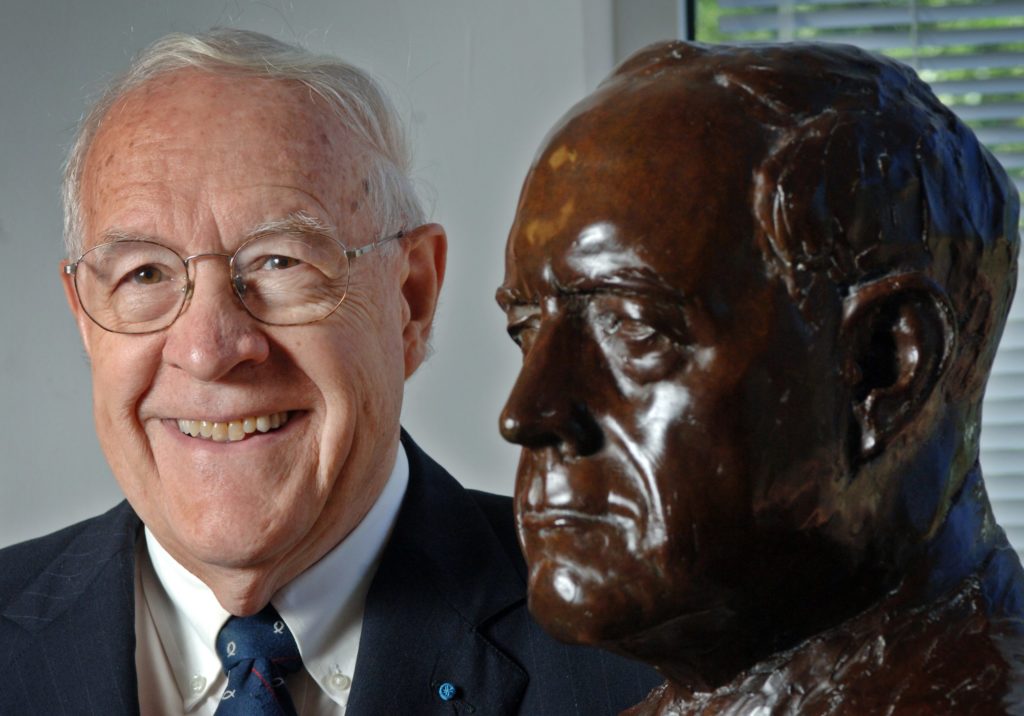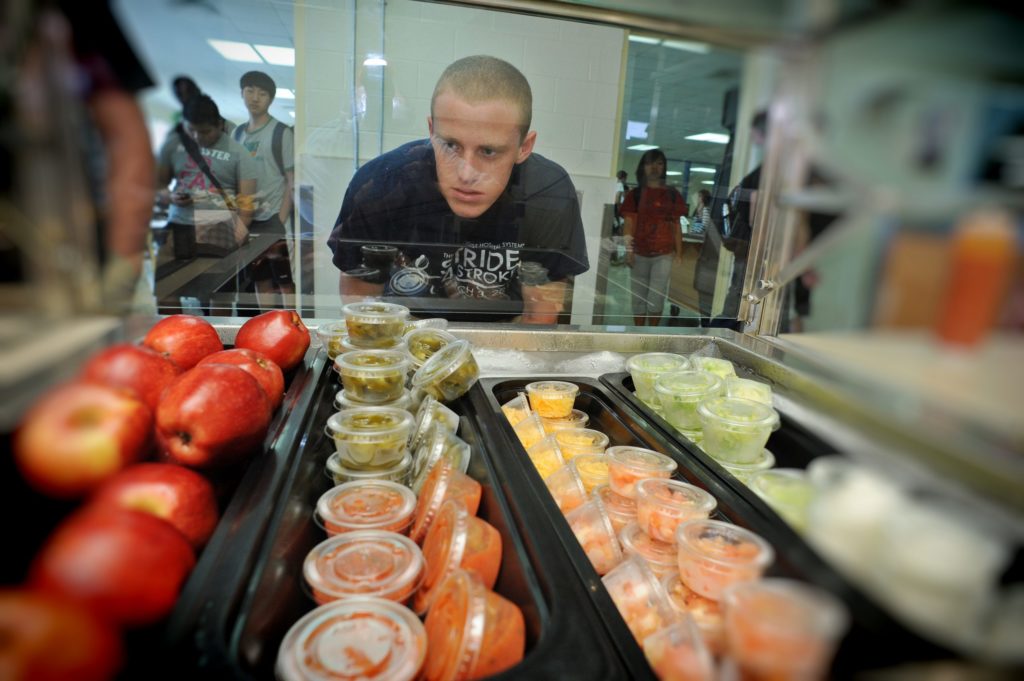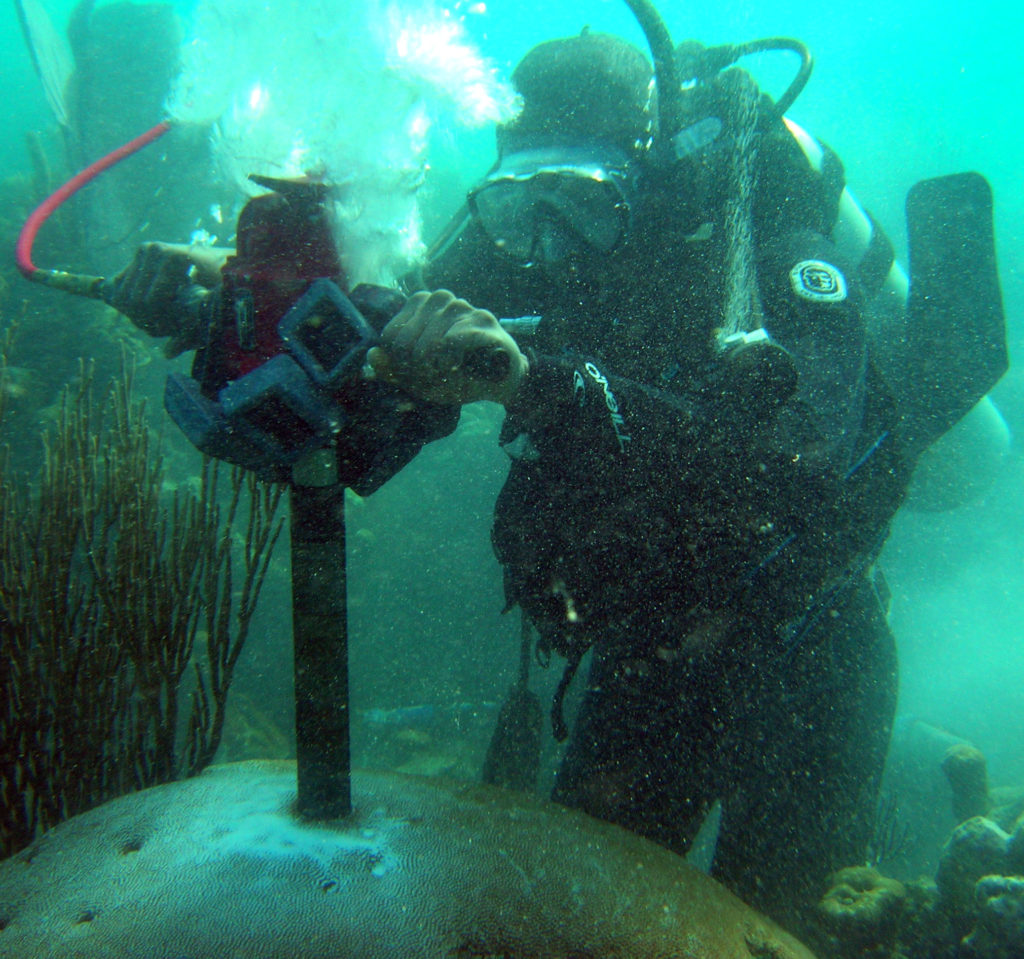
More than 20 years ago, Joe Templeton’s mother-in-law gave him a box of 1,000 business cards.
Embossed under Carolina’s bright blue seal are the words “Joe Templeton, Professor of Chemistry.”
Unlisted are all the other titles he’s held: chemistry department chair, senior associate dean in the College of Arts and Sciences, chair of the faculty, special assistant to the chancellor, Carolina Counts leader.
Templeton keeps the cards unchanged because they convey his most important, and most enduring, role.
“If you think about it, that card is old, but it still works,” he said, running his finger along the lettering. “It has my name, my phone number and my email address, and who I am: a faculty member who teaches chemistry at this university.”
But, if you ask Templeton if he still teaches, he says he quit 10 years ago. He still gets up in front of the class, he just doesn’t teach – he prepares students to learn.
“I can’t tell anyone anything. They have to learn it. How they do that is up to them, whether it’s by listening to me or by solving problems,” said Templeton, Venable Professor of Chemistry and special assistant to the chancellor. “Life is mostly about getting things arranged so they will happen in the way they should.”
His motto has been: “Don’t step forward, don’t step back.” He doesn’t volunteer for things, but he doesn’t say no.
Likely due to his ability to rise to the occasion and get things arranged in just the right way, Carolina has always asked.
Stepping up to serve
Templeton came to Carolina in 1976 to teach in the Department of Chemistry, and he found himself inspired by Bill Little, a former chair of the department who served the University by giving a little bit of himself to everything.
When it was Templeton’s turn to head the department in 1990, he followed that lead.
“Being chair was my introduction into service work at Carolina, and I loved it. Our chemistry department is not only really good, but also really supportive and open, and as chair, even as an average faculty member, I was spoiled,” he said.
Templeton led the department by including senior and junior faculty alike in big decisions. He remembers a year when there wasn’t much money for salary increases, and his full professors all asked not to get raises.
“In meetings I’d ask, ‘So you’re really telling me not to give you raises, to write that in your letters?’” he said. “When you have wonderful colleagues like that, it makes your life easier.”
In 1995, Templeton stepped outside the department to serve in the dean’s office of the College of Arts and Sciences for a few years, and then agreed to spend a semester in London with 32 honors students.
At the time, it wasn’t common for a science faculty member to serve that role, and he treasured the time to introduce students to a city he loved and in which he’d once studied. Because students had made their own travel arrangements, Templeton and his wife, Claudia, greeted each one as they arrived, standing on a street corner for 10 hours to make sure every student was welcomed.
“Taking 32 students to London, where Carolina has fantastic connections, was an enviable activity. Students who study abroad count it as one of their most memorable times at Carolina, and it’s one of mine, too,” he said.
After the trip, he returned to the chemistry faculty and worked as a program officer for the National Science Foundation. In 2006, Templeton was asked to move in a completely different direction: to run for faculty chair.
Connecting people to problems
True to his motto, he didn’t step back. He agreed to run and was elected, vowing to do his best for all his colleagues.
“Most faculty are so busy with teaching and research that faculty governance is not part of their awareness. So, I tried to think of what the faculty who didn’t vote would like to see happen as well as the faculty who did,” he said.
Rather than speak for Carolina’s faculty, Templeton connected the dots among them and put the right people in the right places.
“One of my jobs was to populate faculty committees and to help the chancellor and provost when they needed a faculty member for a certain task. I got to suggest names of people who were going to do important jobs, and that has a lot of impact even though it’s almost completely invisible,” he said.
During Templeton’s tenure, Student Body President Eve Carson, with whom he’d worked closely, was murdered. James Moeser stepped down as chancellor and Holden Thorp stepped up. Then, the Great Recession hit. Consultants from Bain & Company worked to identify ways for the University to operate more efficiently.
Templeton met with the consultants to hear their ideas. Academic issues were going to be too challenging to quantify, and he wanted the faculty to have a voice in operational efficiency conversations.
“Maybe it was being older, or being faculty chair, but I was comfortable sharing my views,” he said. “I’d let them know if they suggested something I thought faculty wouldn’t listen to or when they had a great idea with credibility.”
When Templeton completed his term as faculty chair, he was asked to serve as special assistant to the chancellor with the understanding that a main role would be to lead Carolina Counts, an initiative to implement some of the operational efficiencies identified by Bain & Company.
Templeton didn’t know why he’d been picked, but he didn’t say no. He hired Mike Patil and together they worked with campus leaders to build operational efficiencies into the culture of Carolina and create a model recognized by schools all over the country.
“That was the role probably most outside my comfort zone, and it took me a while to realize what I needed to accomplish and why I’d been asked,” he said. But the many hats he had worn through the years had prepared him for the challenge.
‘That’s my identity’
For his remarkable service to Carolina, Templeton was named the 2014 winner of the Thomas Jefferson Award, presented at the Sept. 19 Faculty Council meeting. One of the highest honors a faculty member can receive, it is given to a faculty member who best exemplifies the ideals and objectives of Thomas Jefferson.
Receiving the award is special to Templeton. It speaks to the name on his card, the one that still tells the truth about who he is.
“I’m not being honored for my role in administration or campus infrastructure – this recognizes the role here that I’ve valued most,” he said, sliding his card across the table. “That’s my identity, right there.”
By Courtney Mitchell, University Gazette




